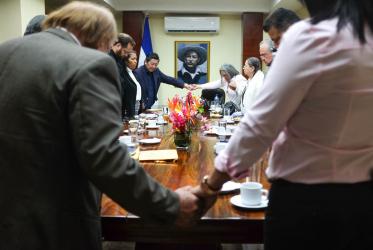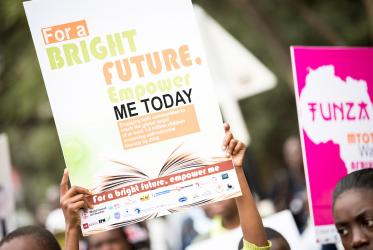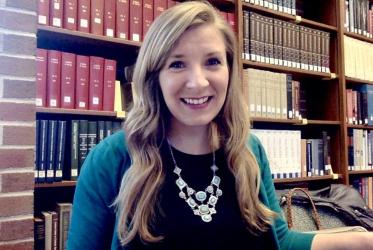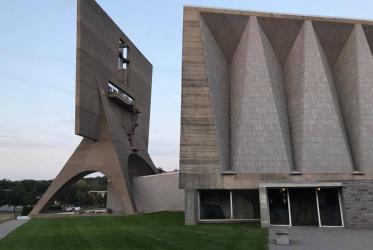Displaying 41 - 60 of 107
07 December 2018
#WCC70: Canadian Quakers and the birth of the WCC
22 November 2018
WCC developing toolkit for health-promoting churches
02 August 2018
Faces of Hope raises awareness
07 March 2018
WCC delegation visits Conference of Latin American Bishops
08 February 2018
Learning and networking flourishes at WCC Ecumenical Officers Meeting
28 September 2017
Emily Welty: tide of hope for a world free from nuclear weapons
19 September 2017
Tveit: search for unity “an urgent need today”
09 September 2017
In Argentina, stirring journey for human rights continues
01 September 2017
"We have our work cut out for us"
10 August 2017
G7 must address famine
22 May 2017













